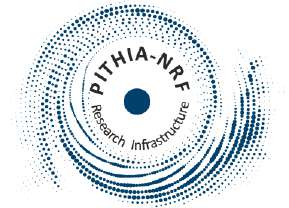Sihui Zhong from the University of Warwick is visiting ROB in the context of the EUI Guest Investigator program. She will present a seminar on her project as listed below.
EUI is the EUV telescope onboard of the satellite Solar Orbiter.
Title: Observations of decayless kink oscillations of coronal loops
Abstract:
Decayless kink oscillations of coronal loops are characterised by low amplitude, no decaying, and omnipresence in the corona. These oscillations could reveal possible mechanisms for coronal energy balance, and allow for routine seismological diagnostics on coronal active regions. In particular, the polarisation of kink oscillations can give us unique information about the mechanism responsible for their sustainability and energy supply.
However, unambiguous determination of the polarisation has remained elusive. Simultaneous detection of a 4-min decayless kink oscillation from two non-parallel LoSs, separated by about 104 degrees, provided by the unique combination of HRI and AIA onboard the Solar Dynamics Observatory demonstrates, for the first time, a horizontal or weakly oblique linear polarisation of the oscillation. This conclusion is based on the comparison of observational results with forward modelling of the observational manifestation of various kinds of polarisation of kink oscillations.
The revealed polarisation favours the sustainability of these oscillations by quasi-steady flows which may also supply the energy for coronal heating. A very long long-living loop bundle was identified using AIA images only. Its length is comparable to the solar radius. This loop bundle is found to host decayless kink oscillations with a period of around 30 minutes, which is the longest periodicity of kink oscillations of a coronal loop ever detected. It further supports the exclusion of the non-resonantly-driven origin of decayless kink oscillations. We applied seismology and differential emission measure to this oscillating loop bundle to estimate its density, temperature, Alfven speed, and magnetic field strength. All these physical parameters are important for space weather forecasting as necessary input parameters.
where: Large meeting room in the Director's house at ROB and on Webex: https://observatory.webex.com/observatory/j.php?MTID=meae6f990f08e016026e65c081dd7e33b
When: Wednesday April 19, 10:30





